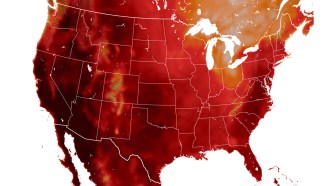Andrea Tamayo is a Fall 2024 science writing intern at Science News. She holds bachelor's degrees in microbiology and international studies from the University of Florida. In 2023, they spent a summer as an American Association for the Advancement of Science Mass Media Fellow at the News and Observer in Raleigh, North Carolina. Following her fellowship, she moved to California to complete her master's degree in science communication from the University of California, Santa Cruz. Her work has appeared in Science, STAT and The Mercury News among other publications.

Trustworthy journalism comes at a price.
Scientists and journalists share a core belief in questioning, observing and verifying to reach the truth. Science News reports on crucial research and discovery across science disciplines. We need your financial support to make it happen – every contribution makes a difference.
All Stories by Andrea Tamayo
-
 Health & Medicine
Health & MedicineDoula care may lead to fewer C-sections or preterm births
A new study comparing the health outcomes of Medicaid patients with and without a doula suggests the extra support during pregnancy may be beneficial.
-
 Animals
AnimalsAt-home experiments shed light on cats’ liquid behavior
Cats can flow like liquids through tall crevices, but they solidify a bit as they approach short crannies, new research shows.
-
 Chemistry
ChemistryWork on protein structure and design wins the 2024 chemistry Nobel
David Baker figured out how to build entirely new proteins. Demis Hassabis and John Jumper developed an AI tool to predict protein structures.
-
 Health & Medicine
Health & MedicineNew electrical stitches use muscle movement to speed up healing
In rats, the sutures hastened recovery and reduced the risk of infection.
-
 Animals
AnimalsSome tadpoles don’t poop for weeks. That keeps their pools clean
Eiffinger’s tree frog babies store their solid waste in an intestinal pouch, releasing less ammonia into their watery cribs than other frog species.
-
 Climate
ClimateClimate change could double U.S. temperature-linked deaths by mid-century
Each year, roughly 8,000 deaths in the United States are associated with extreme temperatures. And as temperatures rise, this number could swell.